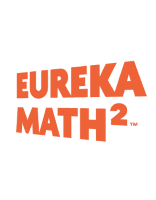
|
1
|
||
|
Topic A - Representing Data to Solve Problems
|
||
|
Also consider:
|
||
|
Also consider:
|
||
|
Also consider:
|
||
|
Also consider:
|
||
|
Topic B - Metric Measurement and Concepts about the Ruler
|
||
|
|
||
|
|
||
|
Topic C - Estimate, Measure, and Compare Lengths
|
||
|
Topic D - Solve Compare Problems by Using the Ruler as a Number Line
|
||
|
Topic E - Understand Place Value Units
|
||
|
Also consider:
|
||
|
Also consider:
|
||
|
Topic F - Express Three-Digit Numbers in Different Forms
|
||
|
Also consider:
|
||
|
Also consider:
|
||
|
Topic G - Model Base-Ten Numbers Within 1,000 with Money
|
||
|
Topic H - Compose and Decompose with Place Value Disks
|
||
|
Topic I - Compare Two Three-Digit Numbers in Different Ways
|
||
|
Also consider:
|
||
|
Also consider:
|
||
|
2
|
||
|
Topic A - Simplifying Strategies for Addition
|
||
|
Topic B - Strategies for Composing a Ten and a Hundred to Add
|
||
|
Topic C - Simplifying Strategies for Subtraction
|
||
|
|
||
|
|
||
|
Topic D - Strategies for Decomposing a Ten and a Hundred to Subtract
|
||
|
3
|
||
|
Topic A - Attributes of Geometric Shapes
|
||
|
Also consider:
|
||
|
Also consider:
|
||
|
Also consider:
|
||
|
Also consider:
|
||
|
Topic B - Composite Shapes and Fraction Concepts
|
||
|
|
||
|
|
||
|
||
|
||
|
Topic C - Halves, Thirds, and Fourths of Circles and Rectangles
|
||
|
||
|
||
|
Also consider:
|
||
|
Also consider:
|
||
|
Topic D - Application of Fractions to Tell Time
|
||
|
||
|
||
|
Also consider:
|
||
|
Also consider:
|
||
|
||
|
||
|
4
|
||
|
Topic A - Mental Place Value Strategies
|
||
|
|
||
|
|
||
|
Topic B - Strategies for Composing Tens and Hundreds Within 1,000
|
||
|
Topic C - Simplifying Strategies for Subtracting Within 1,000
|
||
|
|
||
|
|
||
|
Topic D - Strategies for Decomposing Tens and Hundreds Within 1,000
|
||
|
Topic E - Apply Efficient Addition and Subtraction Strategies
|
||
|
5
|
||
|
Topic A - Problem Solving with Coins and Bills
|
||
|
Also consider:
|
||
|
Also consider:
|
||
|
Also consider:
|
||
|
Also consider:
|
||
|
Also consider:
|
||
|
Also consider:
|
||
|
Topic B - Use Customary Units to Measure and Estimate Length
|
||
|
Topic C - Use Measurement and Data to Solve Problems
|
||
|
Also consider:
|
||
|
Also consider:
|
||
|
6
|
||
|
Topic A - Count and Problem Solve with Equal Groups
|
||
|
Topic B - Arrays and Equal Groups
|
||
|
Topic C - Rectangular Arrays as a Foundation for Multiplication and Division
|
||
|
Topic D - The Meaning of Even and Odd Numbers
|
||
This document includes the IXL® skill alignments to Great Minds PBC's Eureka Math2 curriculum. IXL provides skill alignments as a service to teachers, students, and parents. The skill alignments are provided by IXL and are not affiliated with, sponsored by, reviewed, approved or endorsed by Great Minds PBC or any other third party. IXL® and IXL Learning® are registered trademarks of IXL Learning, Inc. All other intellectual property rights (e.g., unregistered and registered trademarks and copyrights) are the property of their respective owners.